Do you want to import from China to South Africa?
Are you looking for the cheapest way to import products from China to South Africa?
Well you are not alone. As we know, China has become the biggest market in the world to source any kind of product at the best price.
Moreover, according to the latest data released by the Chinese Customs Office, the trade volume between China and Africa hit a new record last year.
Despite this, many importers have been unsuccessful in importing quality goods from China. Why? This is because they do not have a clear understanding of what is required to successfully import the project. Are you one of them too?
Don't worry. In this blog we explain everything you must know about importing from China to South Africa. So, be sure to read this article.
Let's jump right in!
Table of contents |
1. Confirm Imported Products
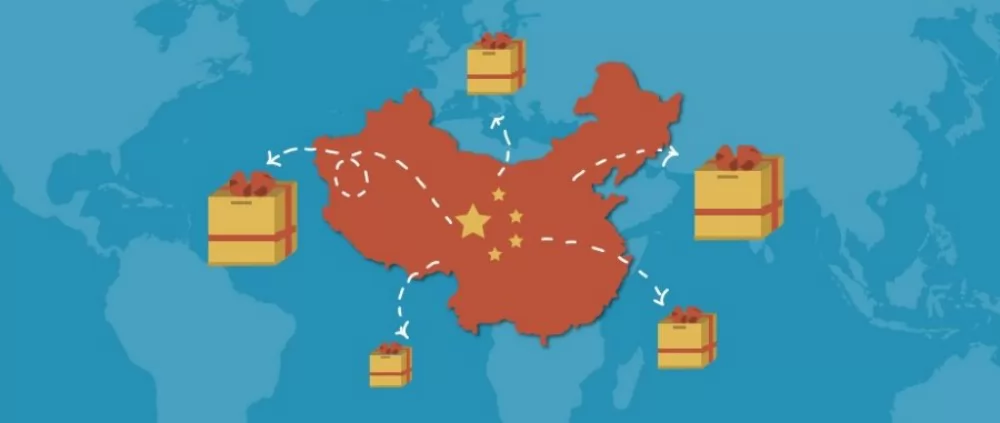
As a vast market, you can import various products from China to South Africa. Here are some common categories of imported goods:
-
Electronics and home appliances: including smartphones, tablets, TVs, computers, home appliances, cameras, and more. It is important that when importing electronics from China into South Africa that they generate any form of EMI they are certified or they will be confiscated by customs.
-
Fashion Apparel and Textiles: Includes apparel, footwear, handbags, accessories, home textile products, and more. The market for fashion clothing is very big in South Africa where people like clothes that look stylish and so does children's clothing, that's why exploring the market for clothing is profitable.
-
Household Goods and Furniture: Includes furniture, bedding, kitchen utensils, decorations, lamps, and more. There are many housing estates and estates in South Africa which provide a ready market for imported furniture.
-
Building materials and decorations: including floors, tiles, bathroom equipment, doors and windows, wallpapers, paints, etc. In South Africa, the building materials market is also quite good, with doors, windows, floors, tiles, etc. being the most popular products here.
-
Mechanical equipment and parts: including industrial machinery, agricultural machinery, auto parts, tools, etc. Having a manufacturing base in South Africa requires a lot of supply of production machines and equipment, and in this regard, it needs to import cost-effective and competitive products from China.
-
Medical equipment and medicines: including medical equipment, pharmaceutical products, health care products, etc. South Africa has a huge medical equipment and pharmaceutical market, and the medical industry is developing rapidly. The South African government has been committed to improving the quality and coverage of medical services. The import of medical equipment and pharmaceuticals provides opportunities.
-
Food and beverages: including all kinds of food, tea, coffee, wine, etc. South Africa's food and beverage market has diverse needs, and consumers' demand for healthy, natural and organic foods has increased. Therefore, when importing food and beverages from China, it is necessary to pay attention to consumer trends and preferences and choose products that meet market demand.
-
Sporting goods and entertainment products: including sports equipment, outdoor products, toys, game equipment, etc. With the continuous expansion of South Africa's sports and entertainment market, consumers' demand for sporting goods and entertainment products has grown steadily, so it is still profitable to import products from China that meet market demand.
This is just a small sample, in reality, you can import a variety of different products depending on market needs and potential opportunities. When choosing imported goods, it is recommended to evaluate according to the demand and consumption trends of the South African market, as well as the quality, competitiveness and feasibility of the products. At the same time, relevant regulations and standards must be considered, and products must meet South African import requirements.
2. How to Find a Reliable Supplier
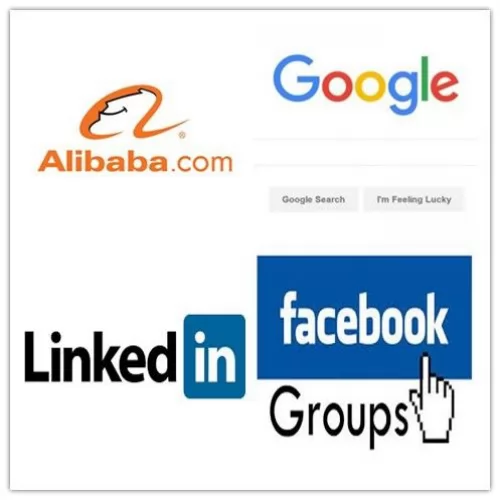
One of the keys to successfully importing products when looking for a reliable supplier, here are some suggestions to help you find a reliable supplier:
-
Participation in trade fairs and exhibitions: Participating in international trade fairs and exhibitions is an effective way to communicate face-to-face with suppliers from China, so that you can directly understand their product quality, production capacity and operation status.
-
Online B2B platform: Use well-known online B2B platforms, such as Alibaba, Global Sources, etc. These platforms bring together a large number of Chinese suppliers, and you can find suitable suppliers through the search and filter functions.
-
Refer to industry networks and forums: Refer to industry networks and forums for experiences and testimonials from other buyers. Connect with industry professionals and other buyers for their advice and recommendations on suppliers.
-
Consult relevant agencies and institutions: Contact trade bodies, chambers of commerce, industry associations and professional consulting firms for their knowledge and recommendations of reliable suppliers. These agencies typically provide supplier background checks and reliability assessment services.
Before establishing a formal cooperation with a potential supplier, it is recommended to conduct sample testing and evaluation. This helps you verify the quality and compliance of your products, as well as your ability to work and communicate with your suppliers.
After confirming to work with a supplier, conduct the supplier's background check and reference check. Check information such as the supplier's reputation, history, financial status and customer references first to be sure. If conditions permit, site visits and factory audits can be conducted. Visit suppliers' factories in person to learn about their production facilities, quality control systems and production processes to ensure they can meet your requirements.
In the end, finding a reliable supplier is not just about finding a partner for a one-off deal, but more importantly, building a long-term relationship. Choose suppliers that match your business goals and values, building a foundation of mutual trust and collaboration.
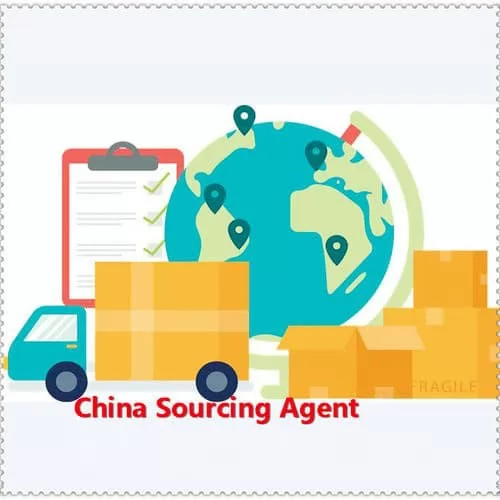
If you are new to e-commerce and don't know about importing from China, I would like to recommend you a reliable sourcing agent - Coolosourcing. As a professional purchasing agent company, Coolosourcing can help you simplify and solve the problems related to importing from China.
Whether you are looking for new suppliers, selecting the right product, or dealing with logistics and customs matters, Coolosourcing can provide all-round support and guidance. They have rich experience and a professional team with in-depth understanding of the Chinese market and supply chain management, which can help you save time and effort during the import process.
Coolosourcing's services cover aspects such as supplier selection, product quality inspection, sample testing, order tracking, customs declaration and logistics arrangement. They have established cooperative relationships with many reliable Chinese suppliers who can provide you with high-quality product selection and ensure timely delivery of your orders.
Cooperating with Coolosourcing, you will get professional purchasing advice, efficient supply chain management and reliable service. They will ensure your purchasing process runs smoothly while providing comprehensive support so you can focus on your business development and growth.
Whether you are an individual entrepreneur or a small and medium-sized enterprise, Coolosourcing is willing to cooperate with you to customize the best procurement plan according to your needs. They focus on customer satisfaction and are committed to building long-term relationships for mutual success.
If you want to know more about Import from China and Coolosourcing, don't hesitate to contact their professional team immediately, they will wholeheartedly help and support you. Start your import journey and create brilliance hand in hand with Coolosourcing!
3. Certificate of Compliance Required for Importing from China to South Africa
While you mostly only need data and documentation to support your import, there are some additional steps you need to take when importing. These are carried out during the customs process and will be done each time you import.
Import goods preparation
In addition to the above data, you will need two other things: the Certificate of Origin and the Certificate of Free Sale.
A certificate of origin is a document issued by the Chinese government stating the contents of the goods, their value, the amount, and the number of invoices supporting the transaction. Your customs agent will use it to make sure that the item really came from China and has gone through the foreign export process correctly.
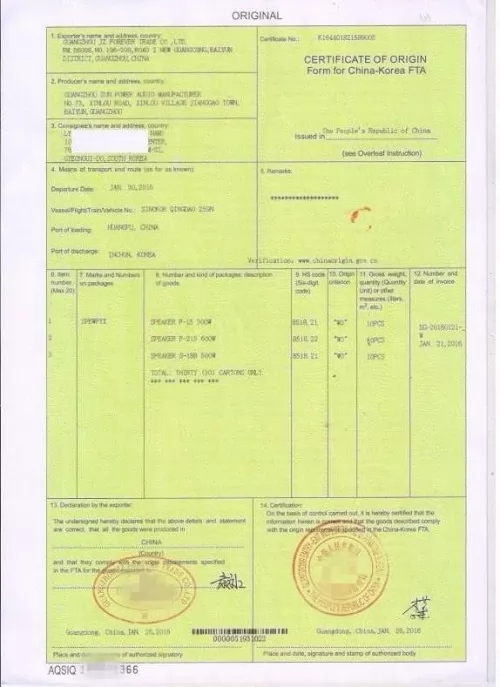
A certificate of free sale is only required in certain circumstances. Specifically, a certificate of freedom of sale states that the goods in the shipment are not for resale and are for personal use only. This certificate is important if you are importing goods for yourself or your own business, as non-resale goods may be subject to lower fees or fewer inspections.
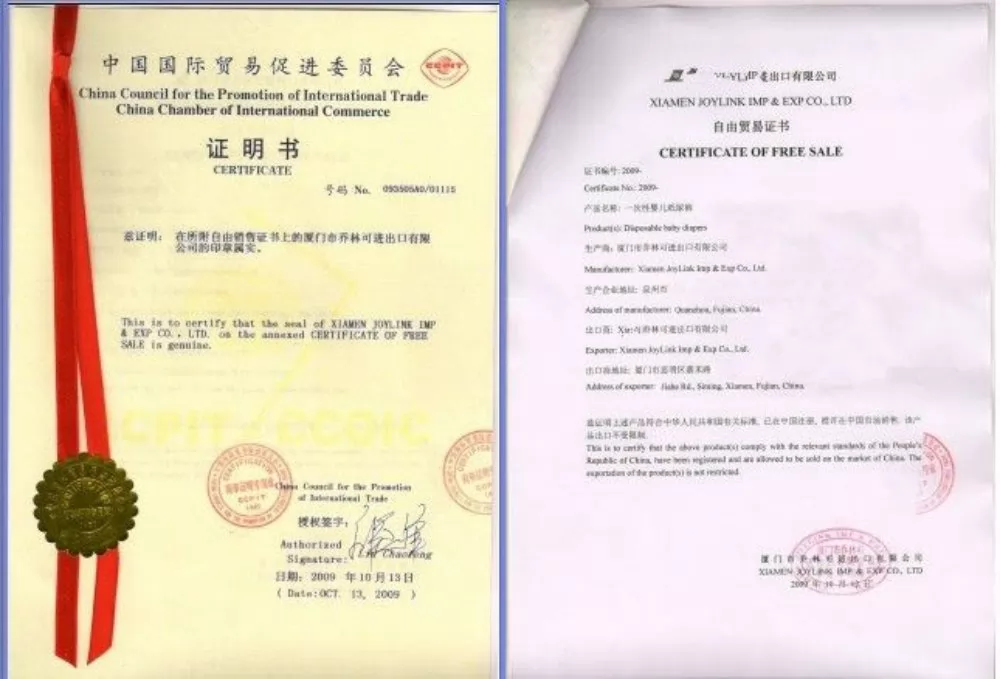
You also need to be registered as an importer with SARS. This process may take several weeks, and it is not recommended that you order anything before then. While individual importers can often buy things abroad without registering—letting their shipping company handle everything—the same is not the case for commercial imports. All commercial imports require a direct link with the importer, who must be registered.

There are two types of importers: formal importers and informal importers. Regular importers can import goods on an ongoing basis, while informal importers only import occasionally – only three times a year. Everyone's requirements are different, but you can always request a change from irregular to regular if you want.
The process itself
Once you are properly registered and your goods are in South Africa, the customs process starts properly. Most often, this process means filling out forms stating what the products are, their category, cost or value, and other data to determine their legality and duties and taxes.
The process can also include inspections of goods by authorities. These checks are done both to ensure your declaration is correct and to help deter the smuggling of illegal items into the country.
It's because of these checks that you want to get it right when filling out customs forms. Populating them incorrectly, even by mistake, could be considered a crime. The above offenses may be punished with as little as a fine but in some cases may result in imprisonment. Always correctly declare what you are importing. Even product details, such as the exact material the product is made of, are important.
The forms used in this process are:
- IE 230, or Application to Register as an Importer. If you are already registered then you will use your importer code.
- If your import is for personal use, i.e. not for resale, you will need to complete Form IE 463. You will also need an attachment to the form.
- Form IE 461 is required if you are importing goods for commercial use.
- Also, if you are importing chemical substances, you will need forms IE 464 and H 464.
- Finally, used goods require form IE462.
These forms can be found on the ITAC website and the SA Government website.
In order to receive your item, you will need documents to prove:
- The above items are legal in South Africa.
- The goods legally left China.
- any duties and taxes have been paid, and
- Allowable payments to freight carriers have been made.
Once you've proven all of these, you're free to get your imports. Please note that you may be charged for storage while obtaining these files. As for where to get them, you should have received them during the import process.
4. Determine the Transportation and Logistics Method
The transportation and logistics methods for importing from China to South Africa mainly include sea freight and air freight. The cost will be affected by many factors, such as the weight and volume of the goods, the transportation distance, the mode of transportation, the type of goods, the time limit for transportation, etc. Here is information about some common shipping methods and costs:
By sea
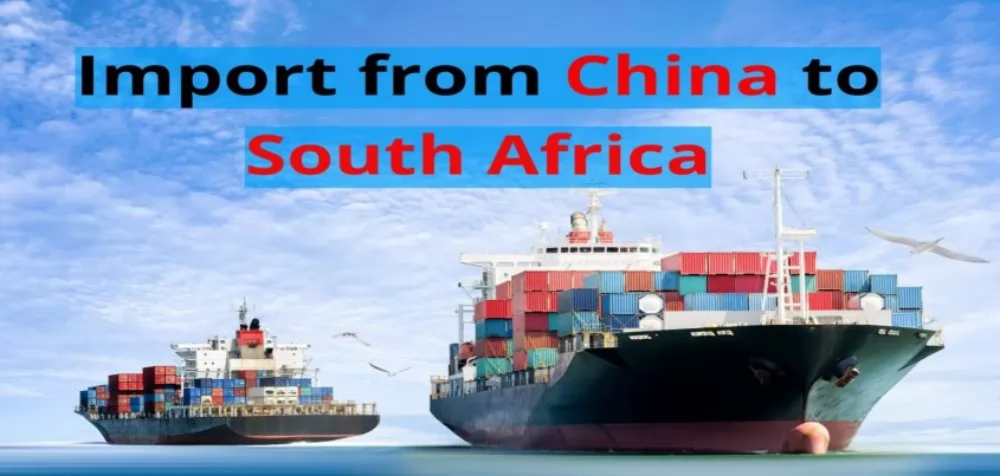
Sea freight is one of the most commonly used shipping methods from China to South Africa, suitable for large quantities of goods and longer distances. Sea freight is usually calculated based on the size, weight and distance of the shipment, and also includes related additional costs (such as port fees, insurance fees, document fees, etc.). The cost of sea freight is relatively low, but the transportation time is longer, generally it takes several weeks to several months.
Air transport
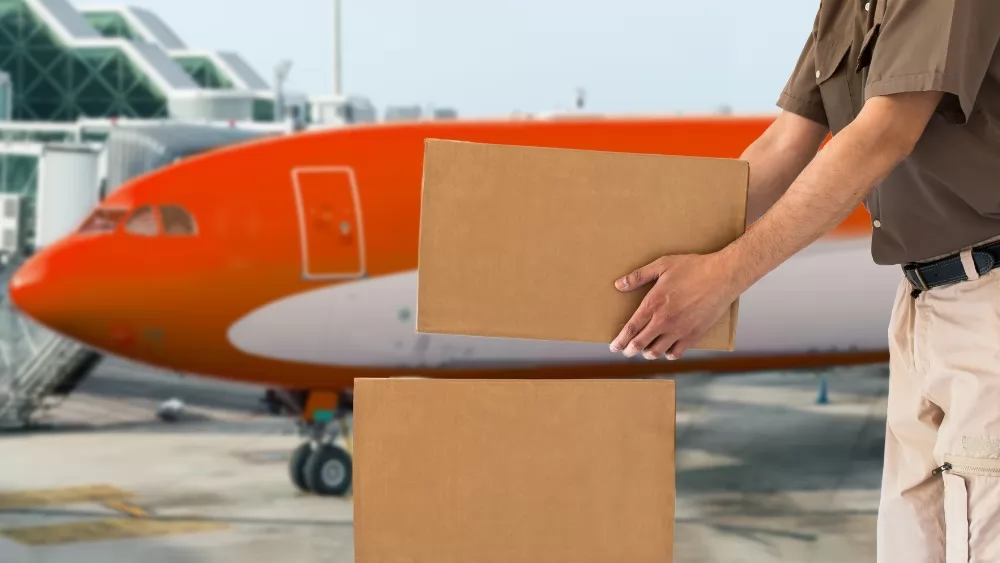
Air Freight is a fast and reliable mode of transportation for the import of urgently needed goods and small batches. Air freight charges are usually calculated based on the weight or volume of the cargo, route and transit time. Compared with sea freight, air freight is more expensive, but the transportation speed is fast, and it usually takes a few days to a week to reach the destination.
Freight forwarding and logistics companies
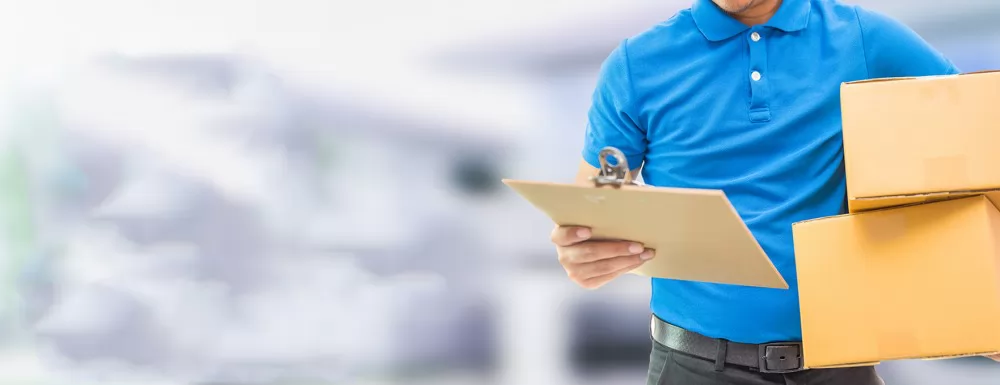
Working with freight forwarders and logistics companies can help you handle the transportation and logistics of your goods. They can provide you with transportation plans, arrange the shipment and customs clearance of your goods, and track the shipment status of your goods. Freight forwarding and logistics company fees will vary depending on the scope of services and the level of service provided.
It should be noted that the specific costs will vary due to factors such as market supply and demand, freight conditions, and transportation company policies. Therefore, before determining the final shipping method and cost, it is recommended to compare and negotiate with multiple logistics companies and forwarders to obtain accurate quotations and service details.
In addition, other possible costs need to be considered, such as handling charges, storage charges, insurance charges, duties, taxes and other related charges. When budgeting, it's important to consider all possible costs to ensure you have a complete picture and can make an informed decision.
The best way is to cooperate with professional forwarders, logistics companies or international trade consulting agencies, who can provide accurate cost estimates and comprehensive transportation solutions to meet your import needs.
5. How to Deal with Customs Declaration and Clearance Procedures
One of the things that people worry about the most, and one of the steps in the importing process that most people find hardest to understand, is customs and taxes. This is understandable, since customs often have hundreds of different ratings, and there may be more than a few that take all of them into account.
However, you don't really need to know all the rules and regulations. Just knowing what applies to your imports is enough - as is knowing how much duties and taxes you should pay.
An easy solution to this problem is to hire a customs agent. Customs brokers are experienced in the entire process, which can not only speed up the legality of each step, but also ensure the legality of each step. They charge extra, but if you're afraid to do it yourself, they're your best bet.
Note that some sourcing agents also offer home deliveries to their customers, giving you peace of mind when your goods arrive in South Africa. You'll be able to get your goods delivered to your door with greater ease.
Import duties will depend on the type of product being imported into the country and the cost of the goods. The costs of bringing products into the country fall into the following two categories.
Tariff calculation
The first thing you need to do is calculate the tariff. To import from China into South Africa, you will need to complete a customs declaration.
With the help of customs officials, you will be ready to fill out declaration forms to confirm your true intentions. Here are the most important questions you should answer on the form:
- The market value of all the products you are importing.
- The shipping rate you are using.
- The HS code of the product.
- Product insurance costs.
- Product descriptions and other information about the item.
- The HS code of the product.
- The name of the insurance broker.
- The total cost of all purchases you have placed on your order.
- The cost of transporting goods.
Anti-dumping and countervailing duties
Countervailing duties and anti-dumping duties are fees that you must pay for:
- A product that appears to be dumped by the government.
- Subsidized products or imported products.
- Such products require investigation of export promotions and pricing in the country of origin. The overall investigation will determine the import duty rate for such products.
- The following factors influence the framework for determining the type and amount of tariffs:
- The value of the goods at customs.
- The volume or quantity of the product.
- It stipulates the collection method of value-added tax, and the value-added tax rate is 14%.
- VAT.
6. Risks and Problems of Importing from China to South Africa
Now that you know how to import goods from China to South Africa, it is also important to understand some of the risks you may face throughout the process.
As we all know, sourcing products at the lowest possible cost is usually the main goal of any business. However, when importing, there is always the possibility of errors.
Therefore, you must understand the problems you may encounter when importing from China. Below we explain some common risks faced by importers. let's start!

Risk 1: Miscommunication Risks and issues of Chinese imports to South Africa
Dealing with overseas suppliers or manufacturers can present a new set of language and communication challenges.
Suggestion: Hire a representative who speaks the local language and industry who can remove barriers and help get your message across.
Risk 2: Challenges of Building Relationships
The norms of conversation and agreements in the West are completely different from those in China. This would mean that you cannot interchange South African American norms with South African Chinese norms. If you have to make progress in China, consider it.
Suggestion: It takes an average of about 10 years to master the traditional Chinese way of operating. Find a local to help you with this.
Risk 3: Wrong order or delivery
If an order arrives at your door with some flaws or something completely missing, you'll be hard-pressed to get a refund. The reason is simple, most manufacturers don't think small businesses overseas are worth the extra effort.
Suggestion: Most manufacturers view brokers as lifelines. So if a broker files a complaint, he's more likely to get a reprieve because the manufacturer sees him as a window into future orders or new customers.
Risk 4: Higher Fees
Hunting for the best bargains can be time consuming and an opportunity wasted. You can't dilly-dally on price if your business needs attention.
Suggestion: You can avoid the hassle of missing opportunities by reaching out to local companies who understand the industry and how they are priced.
Risk 5: High shipping costs
Importing goods by air is always more costly than shipping by sea. But what if your cargo doesn't fit the container load? You'll end up paying for shipping full containers, misusing resources.
Suggestion: Finding someone to share a container and split the cost would be the solution here. However, you need a network that can provide this information to use it.
7. Conclusion
In conclusion, importing from China to South Africa can be a lucrative opportunity to boost your business. By following these top 6 tips, you'll be well-equipped to navigate the import process successfully and maximize your chances of success.
Remember, having a reliable and experienced procurement agent by your side can greatly simplify the process and enhance your overall importing experience. We highly recommend considering Coolosourcing as your trusted procurement partner. With their expertise in sourcing, quality control, logistics, and supply chain management, Coolosourcing can provide comprehensive support and ensure a seamless import journey.
Start importing with confidence! Unlock growth potential with Coolosourcing near you.



